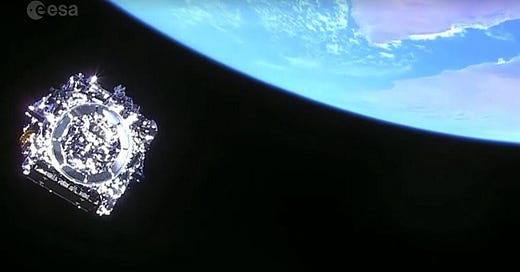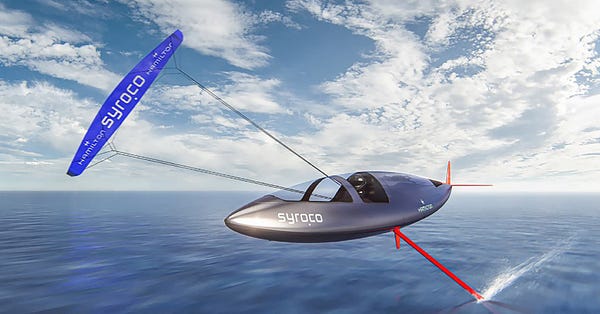Memia 2022.01: It's getting hot in here🔥// Taiwan's "silicon shield"🛡️// Moonrush🌑// goodbye manager🧑💼// the *true* promise of vertical farming🌾// liquid sunshine☀️
Web3 Block party
Kia ora,
Welcome to 2022! I hope that you had a relaxing and restorative summer break🌞 (/winter for northern hemisphere readers…🥶) and arrive back refreshed and looking forward to the new year, whatever it may hold.
Straight back into the swing of things with the first newsletter of the year…
“Below the paywall fold” in this week’s issue:
Geopolitical technology tectonics:
🛡️Taiwan’s “silicon shield” strategy
Russian troops on the Ukraine border - satellite imagery deepfake susceptibility
Kazakhstan unrest and the bitcoin hashrate
Chile: a new national constitution to confront climate change?
Relevance for Aotearoa
(From this week some editorial content will start to live “below the paywall fold” for paid subscribers only - readers can still take advantage of 20% off annual subscription offer open until 17th Jan):
Holiday roundup
🦌⚽The most clicked link in last year’s final issue (8% of openers ) was the goal-scoring deer.
📙In case you missed it, take a read of my annual summary post for last year: Memia 2021 wrapup: Top 10 themes from a year of living with constant uncertainty🦠💉😷.
I’ve been happily “off-grid” for much of the summer break and as such managed to switch off from mainstream- and social- media chatter. Two headline narratives continue to dominate, though:
🔥It’s getting hot in here
Copernicus Climate Change Service released data showed that 2021 was the fifth-hottest on record, with all of the last 7 years being the hottest ever. 2021 average temperatures were 1.1-1.2C above pre-industrial levels (around 150 years ago), making official targets of a maximum 1.5C rise look unobtainable. More worrying, average atmospheric methane concentrations reached 1900 parts per billion last September, the highest in nearly four decades of records - a “fire alarm” moment?
🦠Dodging Omicron…for now
Whether by luck or design (both…?), Aotearoa somehow managed to keep the highly infectious Omicron variant contained at the border over the summer break. High Covid-19 vaccination rates surely contributed to low Delta community cases as well - but experts are warning that an Omicron outbreak is imminent. The situation in Aoteoroa could rapidly go the way of Australia: over 1 million Covid cases now recorded and huge strains on hospitals and supply chains.
Nonetheless, US physician Eric Topol muses on Covid-19 and Omicron so far: We're very lucky - It could be far, far worse.
[Weak] signals
Peering further into space
The international James Webb Telescope (named after NASA’s 1961-68 administrator) has successfully completed its deployment since its launch from French Guiana on Christmas Day. It will now orbit the Sun at a distance of over 1.5 million km from Earth. (Meaning it is unable to be serviced, unlike its Hubble predecessor). Such an incredible achievement, I can’t wait to see the first images it sends back later this year once all mirrors have been aligned.
🌑Moonrush
The Economist reports that, after a gap of over 50 years, 2022 will be the year the Moonrush starts in earnest. International plans for this year include:
SpaceIL is an Israeli not-for-profit also aiming to get a rover to the Moon in the next couple of years.
South Korea’s Pathfinder Lunar Orbiter (KPLO) aims to study the Moon’s surface and help plan future robotic landing missions to the lunar poles.
The UAE plans to deploy a rover on the Moon’s surface this year, partnering with Japanese firm iSpace.
Russia’s Luna-25 moon lander mission is scheduled for July - Luna-24 was the last Soviet-era moon lander from 1976.
This year Rocket Lab will launch the CAPSTONE CubeSat into lunar orbit for NASA, pencilled in to launch from Mahia Peninsula in March. This will support NASA’s Artemis program which aims to land the first woman and next man on the Moon by 2024.
And China will follow up 2020’s successful Chang'e 5 sample-return moon mission with three more missions targeting the moon’s south pole from 2024: Chang'e 6, Chang'e 7 and Chang'e 8.
Web3 is…
2021 ended with many in the tech world talking loudly about the promise of “Web3” without any clear shared definition of what it is, other than a vague return to the decentralisation of “Web1”.
Early days? Signal founder Moxie Marlinspike provides his first impressions:
“Looking at many of the NFTs on popular marketplaces being sold for tens, hundreds, or millions of dollars, that URL often just points to some VPS running Apache somewhere. Anyone with access to that machine, anyone who buys that domain name in the future, or anyone who compromises that machine can change the image, title, description, etc for the NFT to whatever they’d like at any time (regardless of whether or not they “own” the token).”
Bullshit? Stephen Diehl doesn’t pull his punches:
“At its core web3 is a vapid marketing campaign that attempts to reframe the public’s negative associations of crypto assets into a false narrative about disruption of legacy tech company hegemony.”
Funded by Silicon Valley VCs? Jack Dorsey waded into a Tweetstorm with A16Z’s Marc Andreessen, Elon Musk and others.
Block party? Andreessen promptly blocked him on Twitter… after which his account turned into a free-for-all meme-fest…
What can we learn here? Not a lot except that VCs are clearly *ENGAGED*, the technology is *EARLY* and the hype is *HUGE*. As with all emerging tech, some key use cases will arise which prove the tech useful (beyond decentralised currencies) - but the sheer computational and storage expense of decentralisation and putting everything “on the blockchain” doesn’t make much sense to me right now.
🧑💼Goodbye manager
A 2016 Harvard Business Review analysis calculated the annual cost of excess US corporate bureaucracy at about US$3 trillion, with an average of one manager per every 4.7 workers - 30% of the US workforce at the time. The advent of normalised remote working practices during the pandemic may well mean that it is finally time to Say Goodbye to Your Manager.
Aotearoa’s first BIG battery
Meridian Energy announced that it has purchased 105 hectares of land adjacent to the decommissioning Marsden Point oil refinery for the Ruakaka Energy Park, which will house a battery energy storage system (BESS) at least 100MW in capacity, as well as a utility-scale solar farm.
“This represents the beginning of Aotearoa’s next generation electricity grid and supports the country’s transition to 100% renewables.“
- Rebecca Knott, Head of Renewable Development, Meridian Energy
(Great initiative… but dwarfed by China’s new 3.6GW pumped storage hydro scheme).
🌾The *true* promise of vertical farming
I enjoyed this profile in Freethink of San Francisco vertical farming firm Plenty: not only do their indoor farms result in a yield increase of about 700% compared to traditional farming, but they save about a 3.75 million litres of water per week and using just one percent of the land that traditional farms use. But this quote from Plenty co-founder Nate Storey illustrates the real promise:
“We can give the world back — a lot. We can give the world back land. We can give back the jungles of Borneo to the orangutans. We can give back the Amazon to the planet. We can give back the midwest to the buffalo. We can give back the things that we’ve taken. And we can be a lot less extractive.”
This optimistic “post-agriculture” vision resonates with me.
☀️Liquid sunshine
Who needs plants when you can harness solar energy with an artificial leaf? A team from Berkeley Lab has cracked part of the “artificial leaf” code:
“[The photovoltaic] process is famously inefficient, able to capture only about 20% of the sun’s energy…Photosynthesis, on the other hand, is radically more efficient; it is capable of storing 60% of the sun’s energy as chemical energy in associated biomolecules.”
The team is part-funded by the Liquid Sunshine Alliance, which aims to “efficiently and selectively generate liquid fuels from sunlight, water, carbon dioxide, and nitrogen”.
Open source insulin
100 years since the discovery of Insulin as a treatment for Type-1 Diabetes, 95% of global insulin supply is dominated by 3 large pharma companies. Prices tripled in the decade to 2019.
The non-profit Open Insulin Foundation plans to develop the world’s first open-source insulin production model, delivering high quality locally-produced product at 98% lower cost to the 387 million people living with diabetes worldwide .
It’s a windy planet
The world’s largest offshore wind farm, with a colossal 1.3GW capacity, just went live off the coast of Denmark.
Also, I back this kite-powered foil concept for the next Americas Cup:
Mind expanding
The Global Just Transition Project provides updates on the status of Green New Deals, ecosocial pacts, and “just transition” plans around the world as the international community pivots away from fossil fuels and toward clean energy.
Despite decades of efforts by scientists and ecologists to demonstrate that our current economic systems have long outstripped the capacity of the planetary ecosystem, “economic growth” remains at the heart of virtually every government’s national policy. (“GDP increased by 3% last year, Yay”). The opposite of economic growth - “Degrowth”, is still an unpalatable political concept.
Contributing to the project, Foreign Policy In Focus (FPIF) Director John Feffer articulates the challenges involved with the “selling” of Degrowth - can those who advocate hitting the brakes on economic growth get their message across before it's too late?
Hidden gems
I was inspired by the originality of the indigenous-inspired Bolivian architectural movement below. Given the massive building programmes by Kainga Ora and “affordable” housing being embarked upon in Aotearoa, is there still time to apply a bit of imagination to create more colourful landmark buildings with more legacy and indigenous authenticity?
And I thought I’d share two magic moments from my summer holiday tripping around Te Waipounamu!

As always thanks for reading and I’m looking forward to an exciting 2022!
Paid subscribers read on…
Ngā mihi nui
Ben
Keep reading with a 7-day free trial
Subscribe to Memia to keep reading this post and get 7 days of free access to the full post archives.














